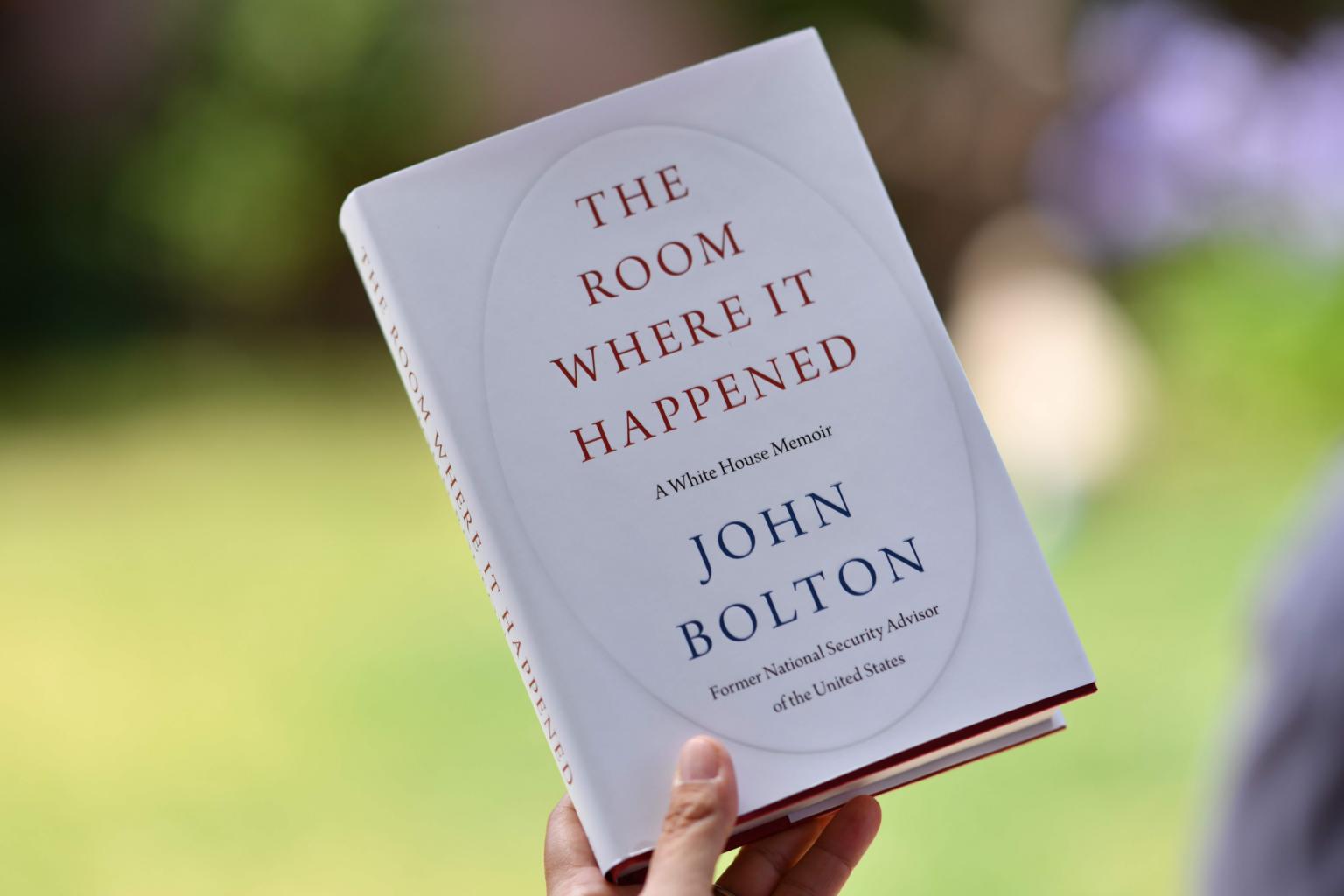The Asian Voice
What Bolton's book says about him: Dawn columnist
In his commentary, the writer says that former national security adviser John Bolton's White House memoir shows how Mr Bolton sought to push US President Donald Trump towards even wilder actions.
Sign up now: Get insights on Asia's fast-moving developments

The book is interspersed with accounts of Trump's mindset and his frequently surreal encounters with foreign leaders.
PHOTO: AFP
Mahir Ali
Follow topic:
ISLAMABAD (DAWN/ASIA NEWS NETWORK) -When arrangements were underway last year for an unlikely meeting at Camp David between Donald Trump and the Taleban, it was decided at the highest levels of the US government that Vice President Mike Pence must not attend.
Although the Afghan rebel delegation would obviously be screened by security personnel, Mr Trump was keen that they should not be humiliated.
Which meant one of them just might have been able to smuggle in some explosives.
Perhaps one of the scenarios on the minds of the worriers was the 2009 incident where an Al Qaeda operative ostensibly wishing to surrender, concealed combustible materials in his rectum and almost succeeded in assassinating Saudi prince Mohammed bin Nayef (who was subsequently made crown prince, but is now reportedly in custody, and at the mercy of his successor).
Anyhow, in the event of something untoward befalling both the president and the vice president, the speaker of the House of Representatives would be next in line for the White House.
So Mr Pence had to be kept safe to ward off the possibility of Nancy Pelosi taking over as commander-in-chief.
Mr Trump's former national security adviser John Bolton doesn't quite put it that way in his White House memoir, The Room Where It Happened, published on June 23 after a judge rejected a legal effort by the Trump administration to seek an injunction against the book.
The pre-publication has pushed the book into bestseller territory. It does not deserve that accolade, and its status as a bombshell that decisively undermines the Trump presidency is probably overrated.
Sure, the nearly 500 pages of turgid prose are interspersed with some interesting accounts of Trump's unsettling mindset and his frequently surreal encounters with foreign leaders.
Overall, though, much of that was well-traversed territory. The protagonist who stands out as a villain in these pages is not so much Donald Trump, whose relentless follies and failings are hardly a state secret, but John Bolton himself, who at almost every juncture sought to push the president towards even wilder actions and utterances.
Mr Bolton was something of a bit player in the Reagan and George H.W. Bush administrations, later rising through the ranks for a disastrous tenure of little more than a year as George W. Bush's ambassador to the UN.
Following Mr Trump's unexpected electoral victory, he was desperately keen to be inducted as secretary of state.
It didn't work out, but he kept screen-testing for the role as a vigorously pro-Trump commentator on the president's favourite channel, Fox News, while also frequently hanging out in the west wing of the White House and occasionally being summoned into the Oval Office for conversations on foreign affairs.
His impression at the time was that Mr Trump was being held back from following his instincts by the "adults in the room", such as defence secretary Jim Mattis and secretary of state Rex Tillerson.
He ingratiated himself with the president, apparently under the assumption that he would be the alpha-male among the advisers, and bring his profoundly reactionary ideological leanings to bear on the conduct of foreign affairs in particular, thereby replacing a chaotic free-for-all with a hawkish order.
Evidently, he failed to see through Mr Trump's facile facade, which was obvious to anyone who cared to look well before he stood for election.
Mr Bolton has this week been telling interviewers that Mr Trump is unfit to be president, but it takes a fairly high level of idiocy not to have recognised that at least four years ago.
Mr Trump and Mr Bolton bonded on their mutual antagonism towards the sensible Obama-era nuclear deal with Iran, but Mr Bolton was dead-set against the president's inclinations to engage with the leadership in Tehran.
He loved Mr Trump's "fire and fury" rhetoric against North Korea, but hated the idea of the president's bromance with Kim Jong-un.
He trembled with trepidation when Mr Trump talked of conversing with Bashar al-Assad or Nicolas Maduro, but desperately strove for regime change in the case of Venezuela, and has no regrets, notwithstanding the fact that his absurd campaign to recognise Juan Guaido as president has turned out to be a massive embarrassment for the nations that were stupid enough to sign up to it.
Mr Trump has lately had a lot more than Mr Bolton's book to contend with, including a couple of supreme court judgements and a poorly attended election rally in Tulsa, Oklahoma.
His response to the murder of George Floyd and the Black Lives Matter marches has been abysmal. It's impossible to say, though, that Mr Bolton, with his Trump-detested moustache and matching toupee, would have done any better.
If anything, his inclinations are much worse than Mr Trump's instincts. Absurd as Mr Trump's predilections may be, he is, mainly for narcissistic reasons, not quite as far gone as Mr Bolton.
If Mr Trump is toppled in November, let's hope that's the last we hear of Bolton, his failed enabler.
The writer is a columnist with the paper. The paper is a member of The Straits Times media partner Asia News Network, an alliance of 24 news media organisations.

